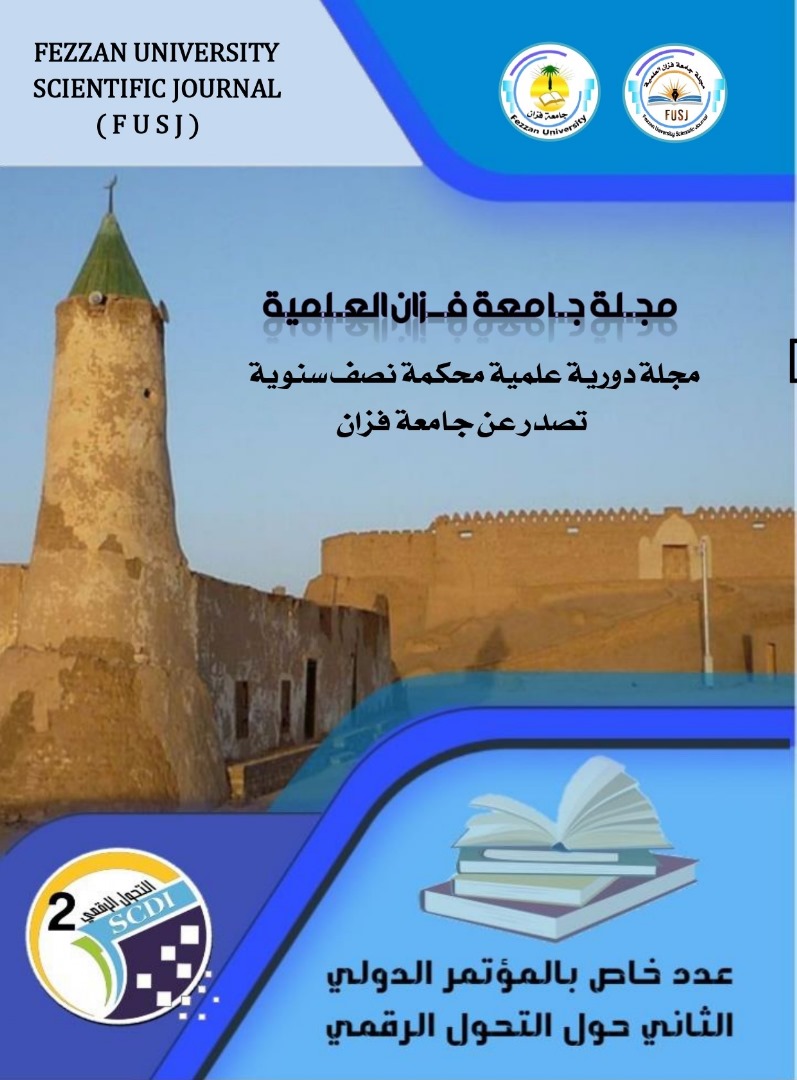IMPLEMENTATION OF MODERN E-LEARNING IN UNIVERSITY OF FEZZAN: FACULTY MEMBERS' ATTRIBUTES
##plugins.themes.academic_pro.article.main##
الملخص
The research on the E-learning system is becoming more popular because of its formalized teaching method with the help of multimedia resources, lower costs of training for large groups, quicker context delivery potentiality, and lower environmental impact. With the advancement of technology in communication and education, the E-learning system became the backbone of the higher education system and skills in developing centers. The study aims to test the factors that will affect the successful implementation of E-learning. The study model consists of one external factor that is divided into three sub-factors, which serve as the (IV) independent variables, (the faculty members ‘attributes as the main factor, and (faculty members’ attitudes, control of technical equipment, teaching style all of them as sub-factors ) and the internal variable as the (DV) dependent variable (the successful implementation of E-learning). Additionally, the researcher tests the influence of institutional support as a moderating variable between the independent and dependent variables to achieve the research aim. The data collection process employs a quantitative approach using Exploratory Factor Analysis (EFA) and Multiple Linear Regression Analysis through the SPSS program Version 23. The study population represents the faculty members at the Fezzan University of Libya. The results obtained in the study showed that all the tests to direct and indirect effects to variables had a positive effect on the successful implementation of E-learning. However, the results of the indirect impact test were greater.

